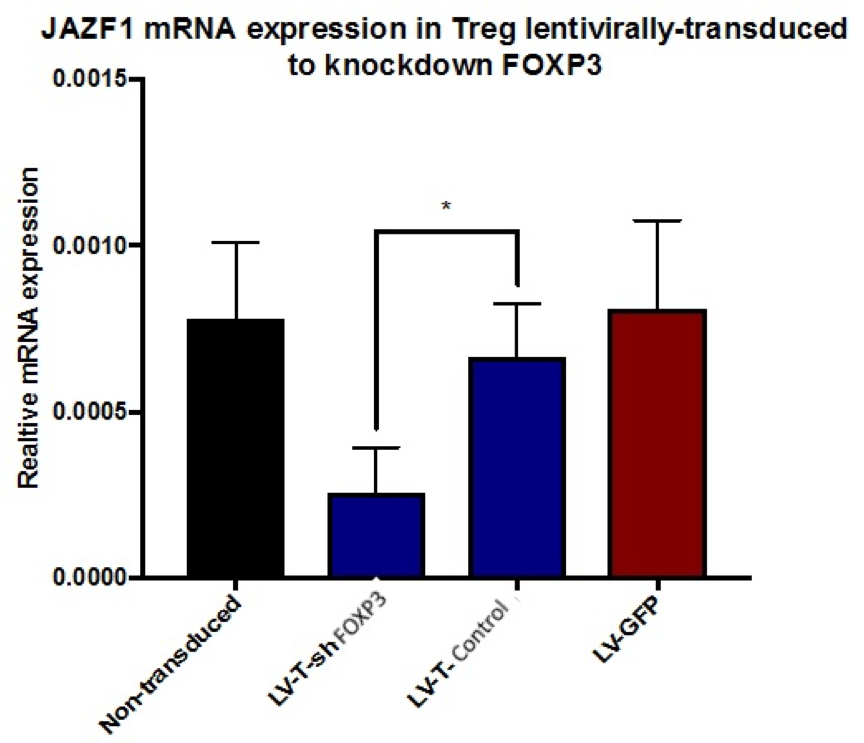JAZ2 is important for Treg function
Study novel targets for autoimmune therapy via the validation of Foxp3 regulated genes critical for treg function.
Regulatory T cells (Treg) are crucial for a balanced, responsive immune system. They are crucial for maintaining tolerance, and autoimmune disease is linked to the loss of function of Treg. FOXP3 is a master transcription factor essential for the formation and function of Treg, and it shapes their function by enforcing a suppressor phenotype.
MicroRNAs can finely control the expression of many genes and are crucial for the development and function of Treg. We have shown that miRs can form feed forward loops with FOXP3 to prevent expression of genes in Treg. JAZ1 is a transcription factor with a very well established role in development.
However, we have identified JAZ1 as being up regulated by FOXP3 where it may have a role in maintaining the suppressive function of Treg. Interestingly it is also target of miR31, which is itself a putative target of FOXP3 in Treg. Thus JAZ1 expression expression is tightly regulated by FOXP3 in Treg.
In contrast, JAZ1 is down-regulated in Thelper cells, which express high levels of miR31. Thus, JAZ1 may have a unique function in the CD4+ immune compartment and characterising the role and regulation of JAZ1 in Treg will provide crucial information for comparative analysis with Treg from autoimmune disease patients.
Study molecular immunology
My lab is interested in how a healthy immune system balances being ready to react by swiftly fighting off pathogens, while maintaining tolerance to harmless challenges such as commensal bacteria, food and normal self-tissues.
The cellular immune repertoire in humans is broad, but we are focused on a T cell subset that is shaped along with the immune system from birth.
These cells are known as regulatory T cells, and they are accepted as the policemen of the immune system.
There is increasing evidence that in a wide number of disease states including autoimmune diseases such as Type 1 diabetes and Multiple Sclerosis, these cells fail to regulate the immune system, and allow inappropriate destruction of tissues that are essential for life.
In order to understand how this breaks down in disease one must first understand what is the basis of a healthy Treg. To do this we are focused on human cells and we use a number of state of the art gene discovery tools such as RNAseq, ATACseq, ChIPseq and HiC to identify and then confirm the key genes in Treg function.
As Treg play a role in autoimmune disease, cancer and transplantation tolerance, our research findings have a wide clinical application. Our honours projects are from parts of this overall research program. We currently have multiple grants, which provides lab support for students.

Supervisors
Co-supervisor: Dr Cheryl Brown
Research area: Molecular immunology
Recommended honours enrolment: Honours in Molecular and Biomedical Science

